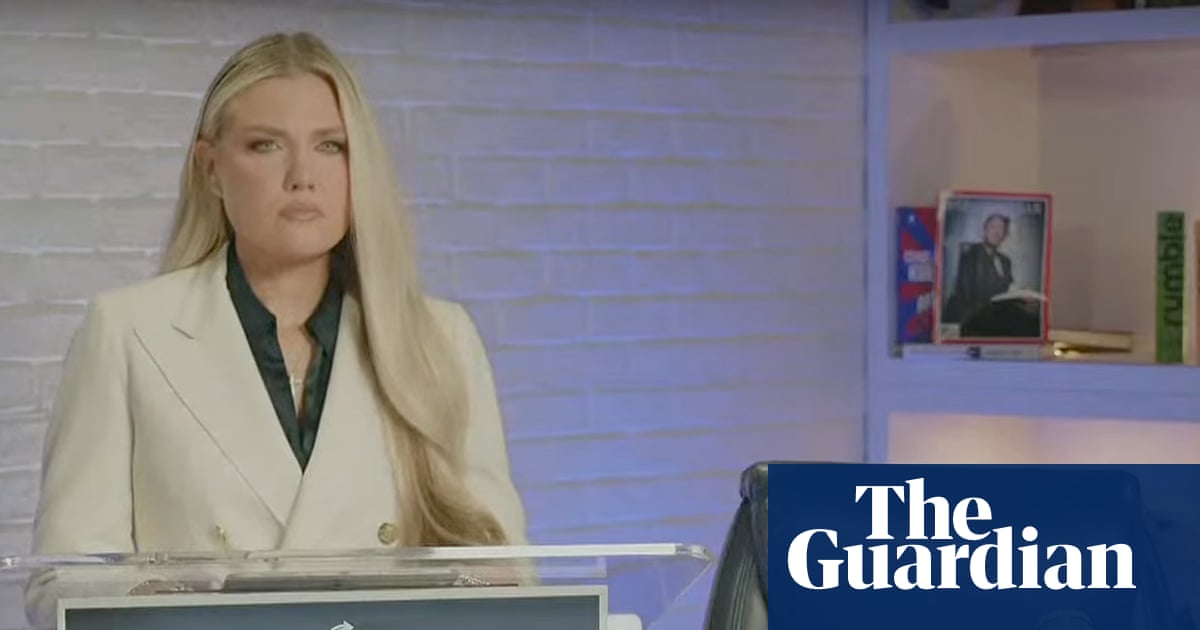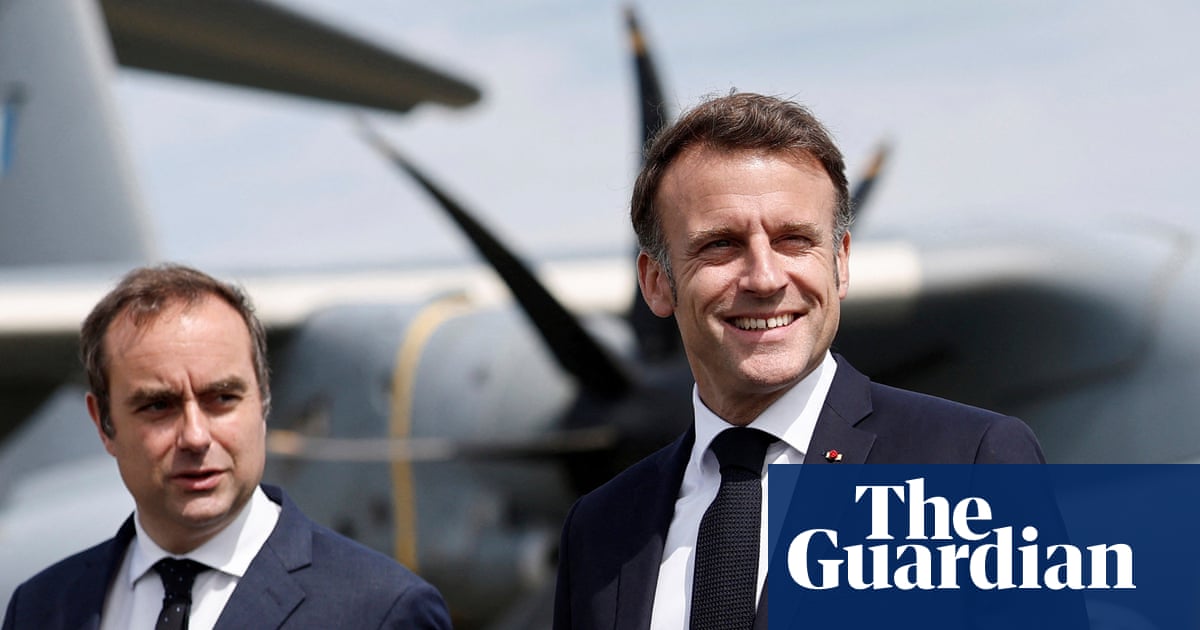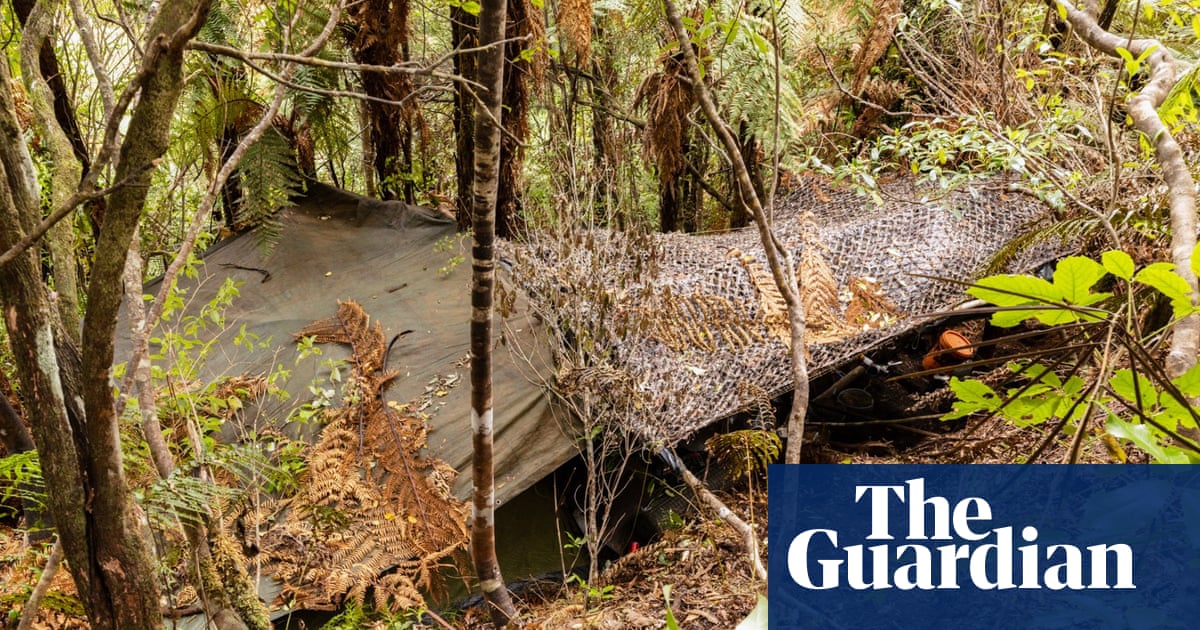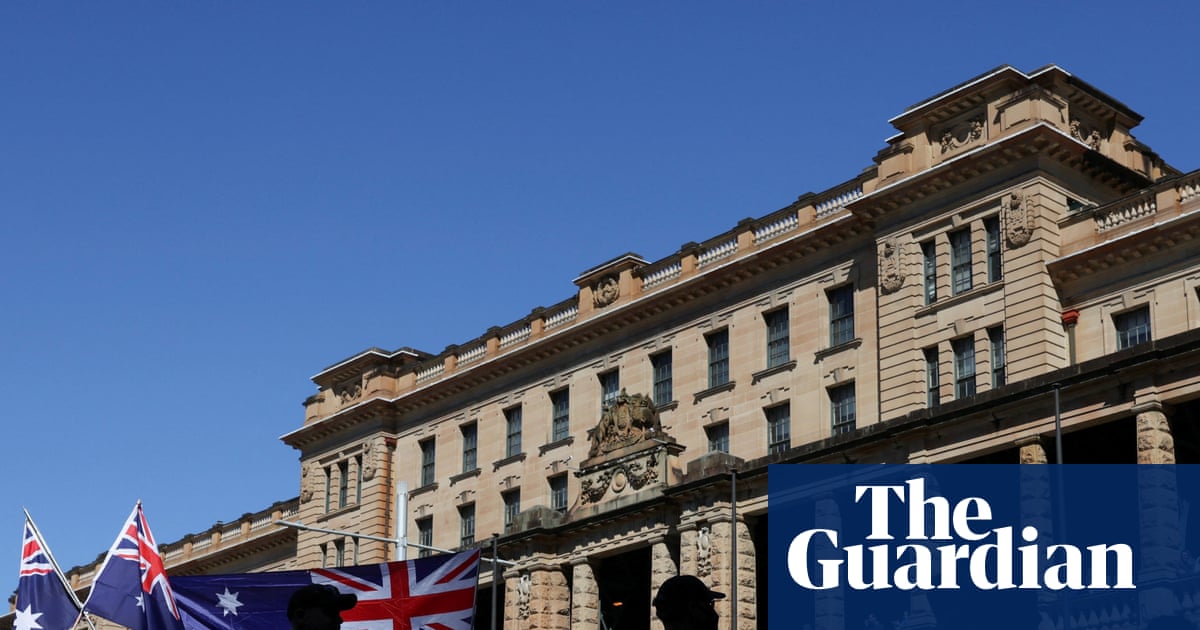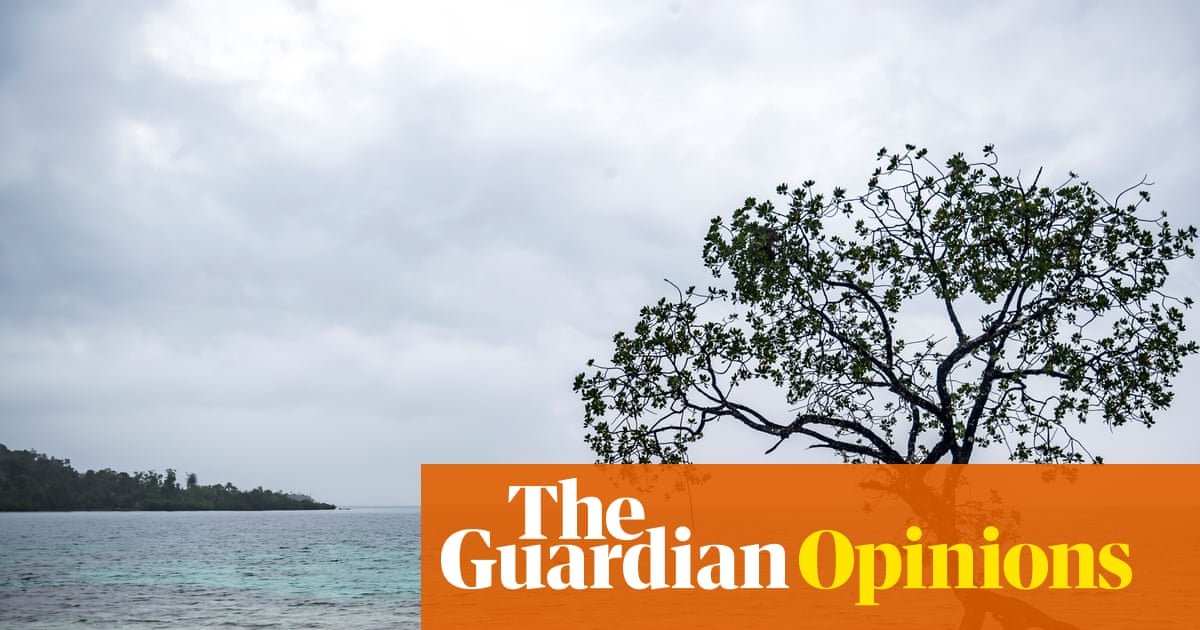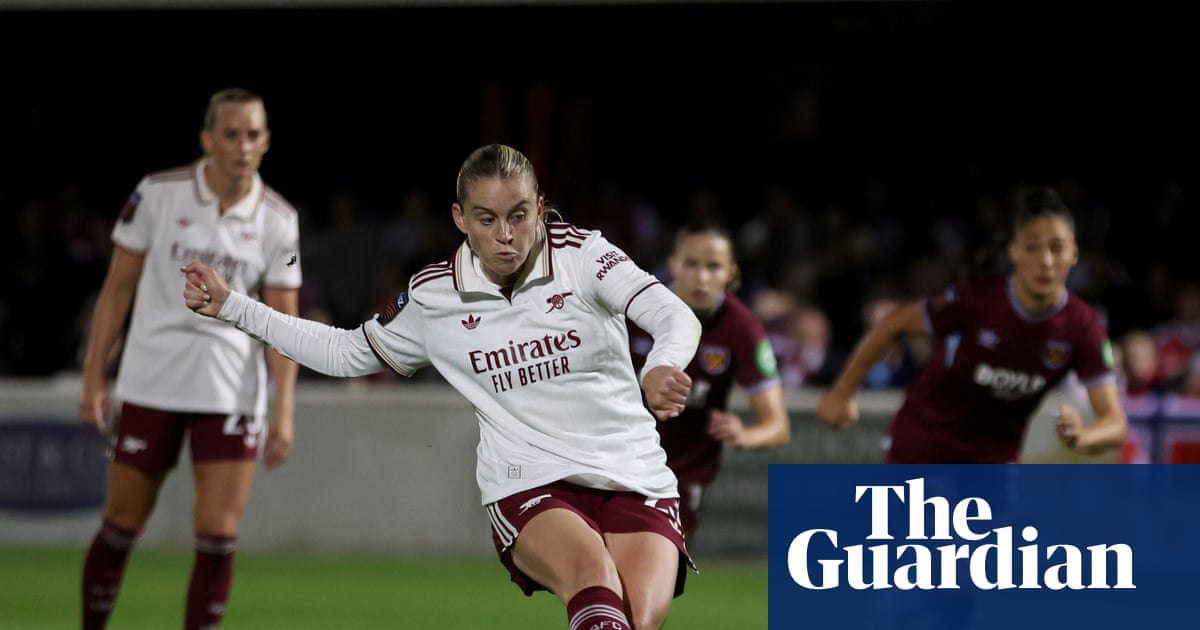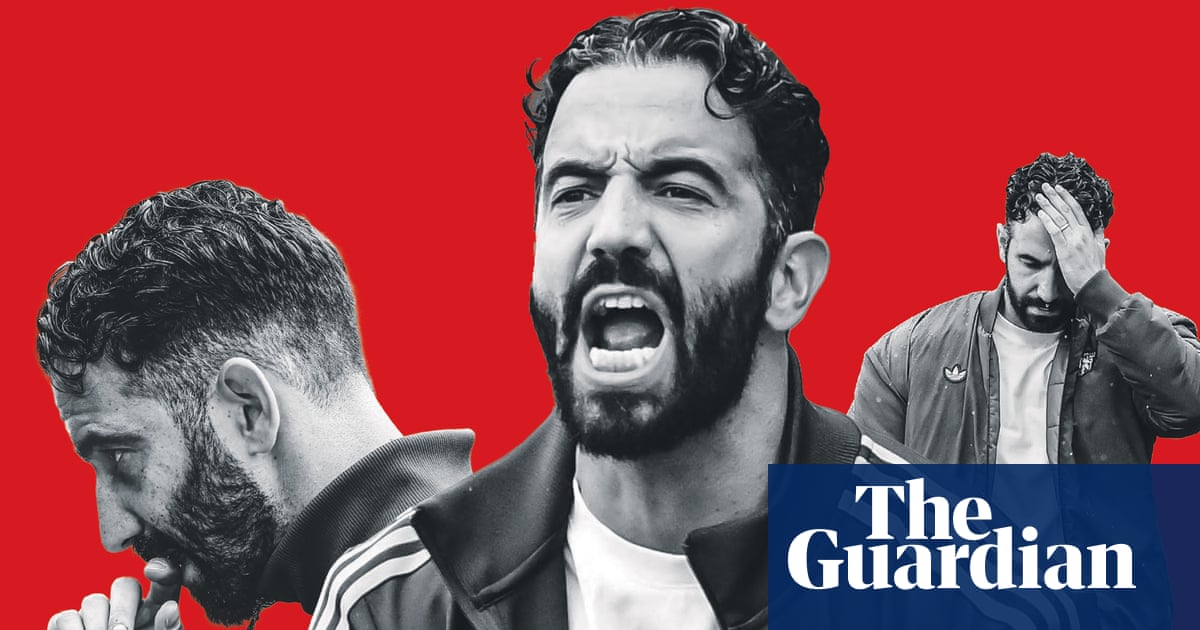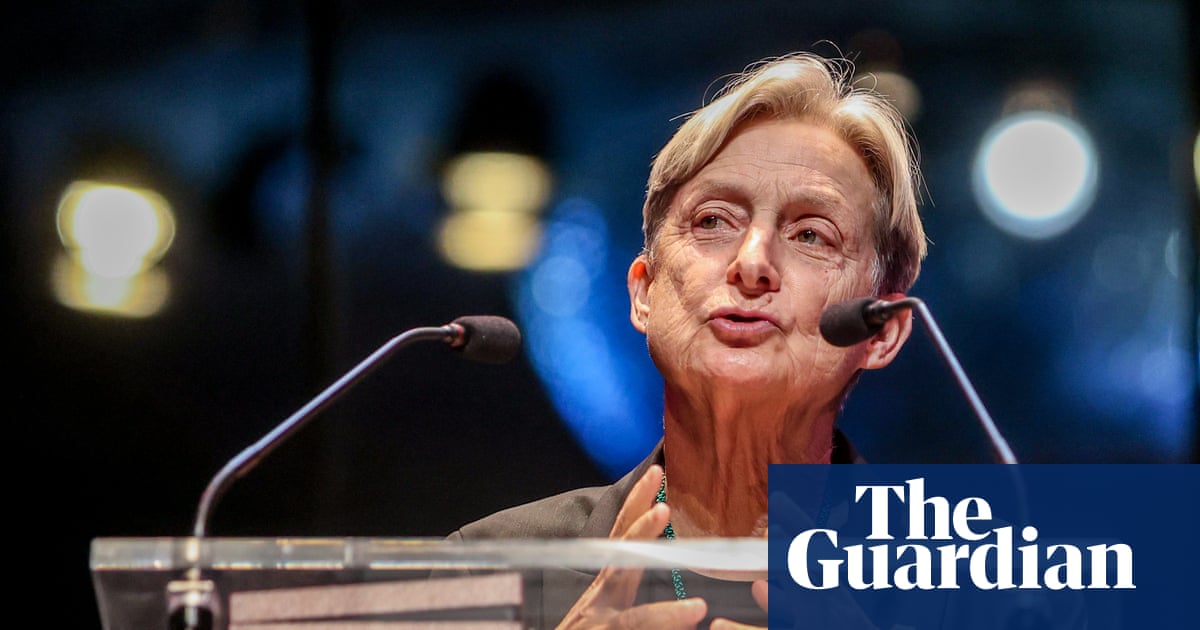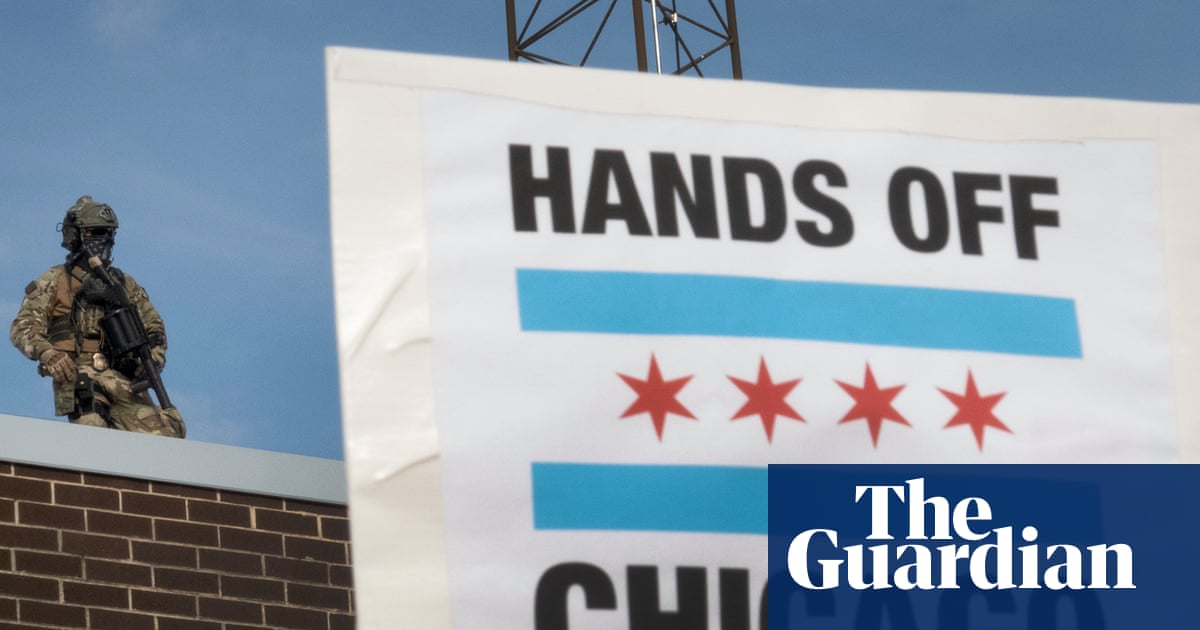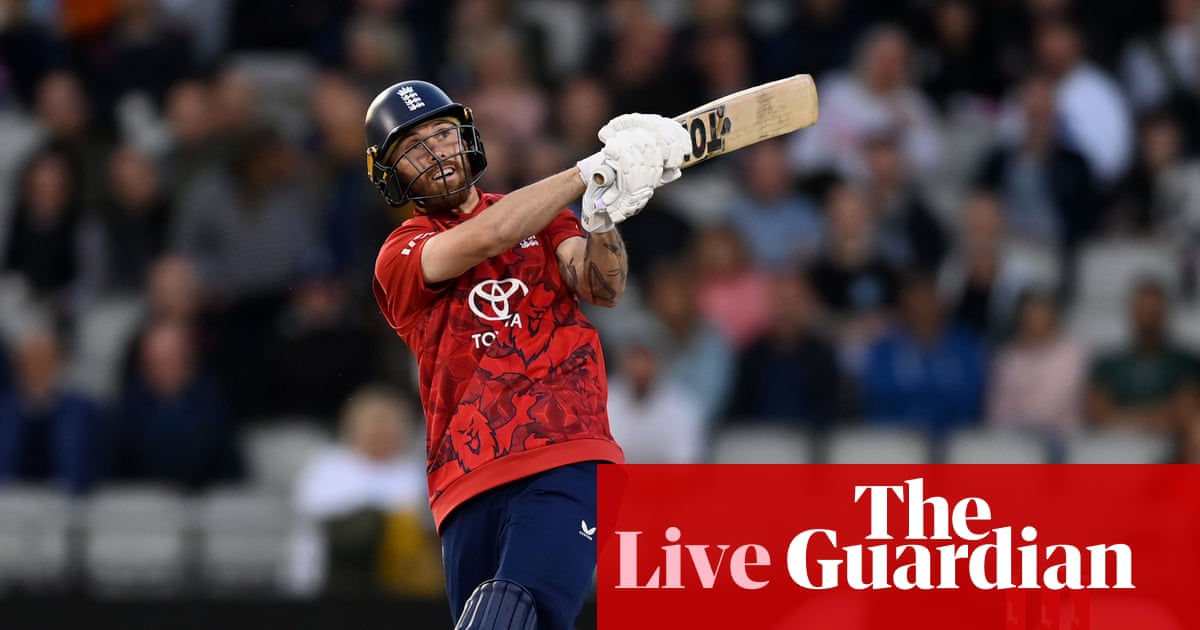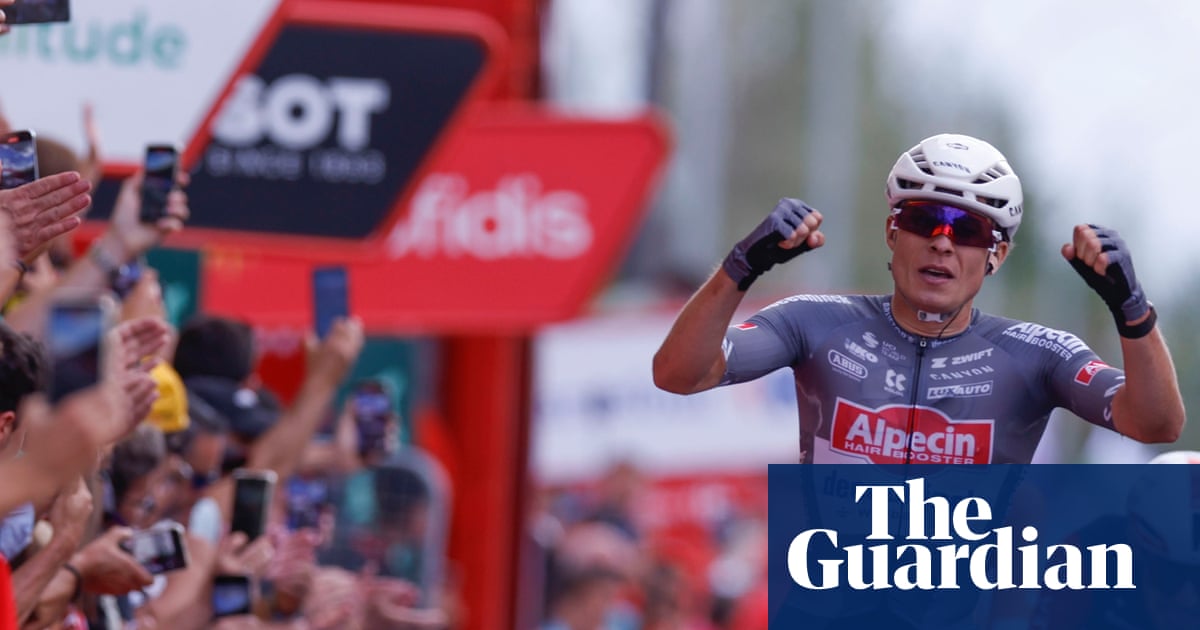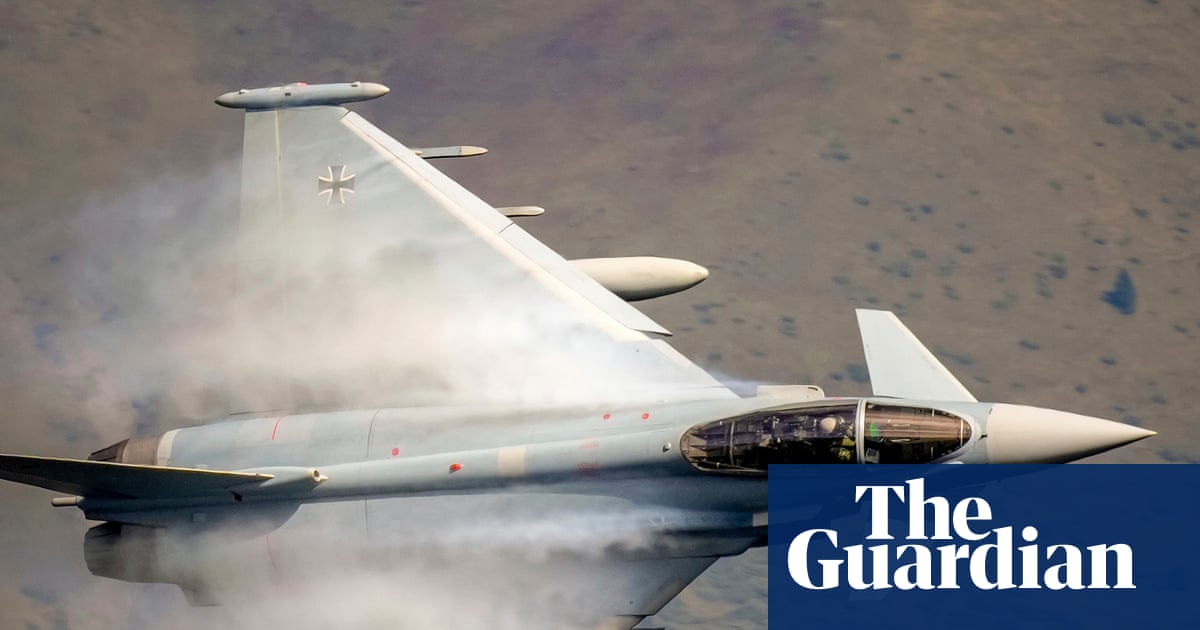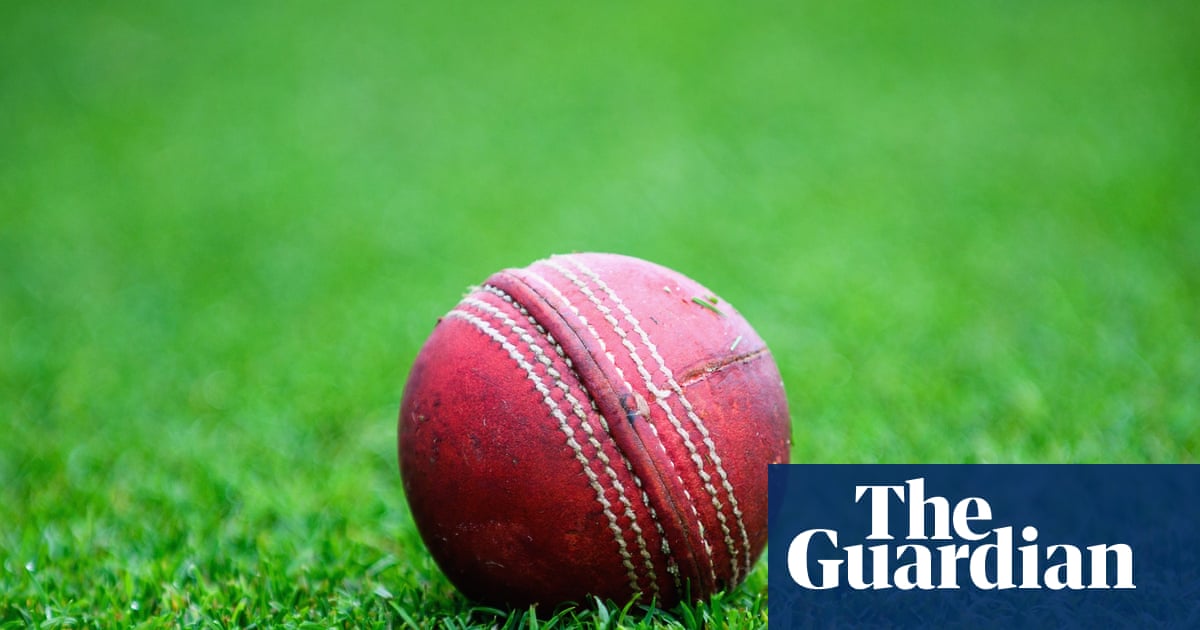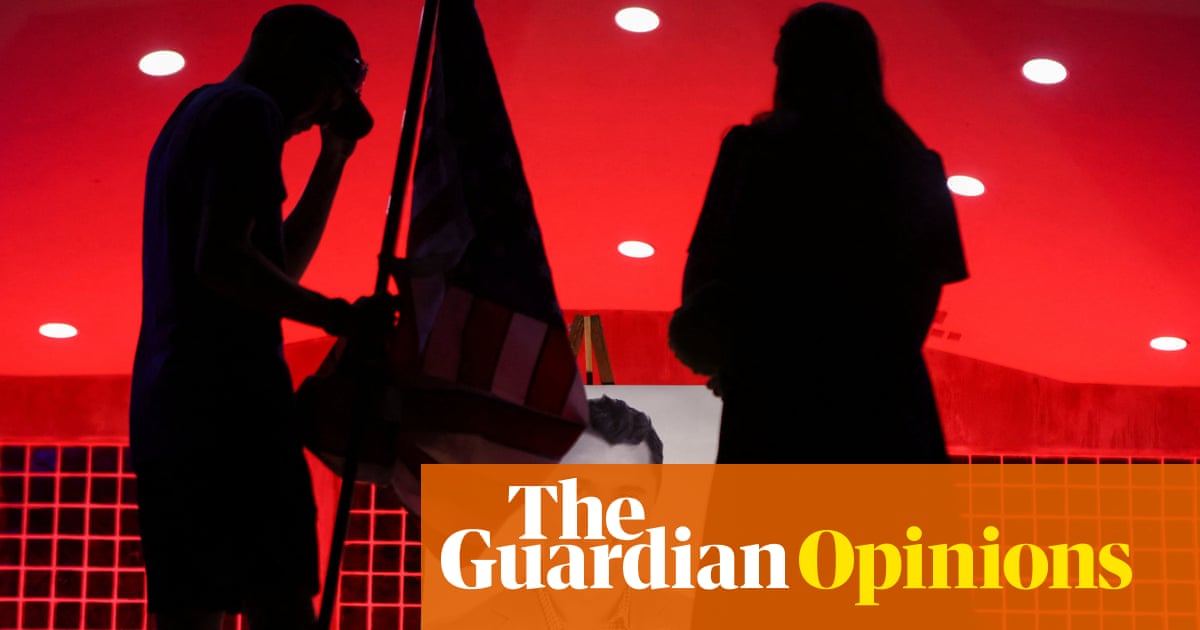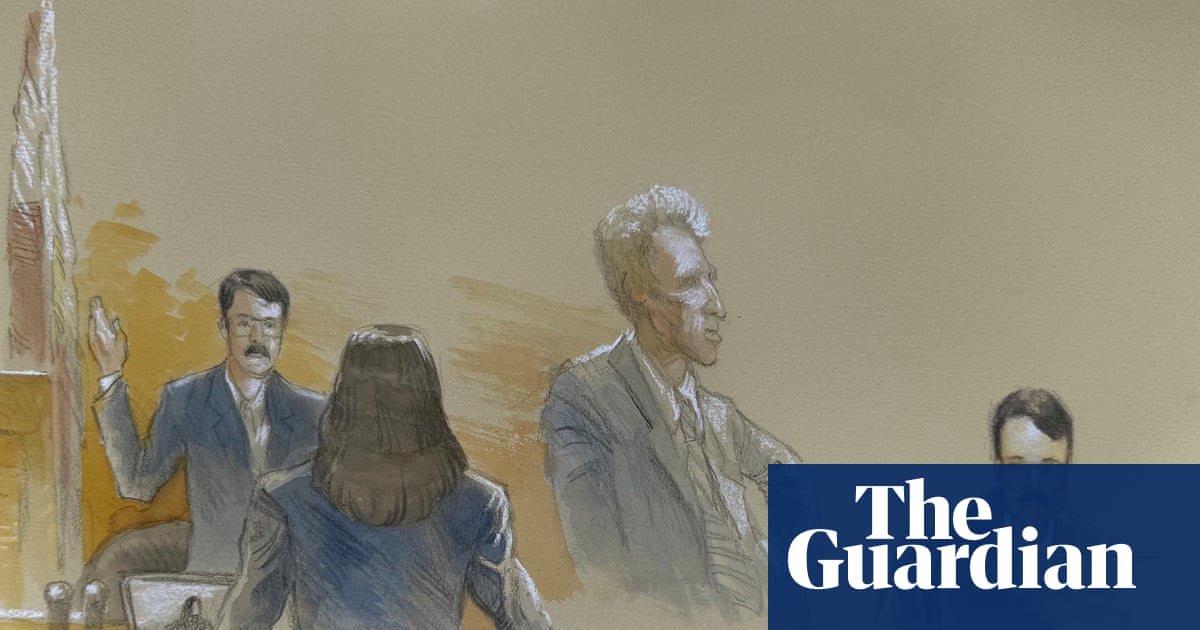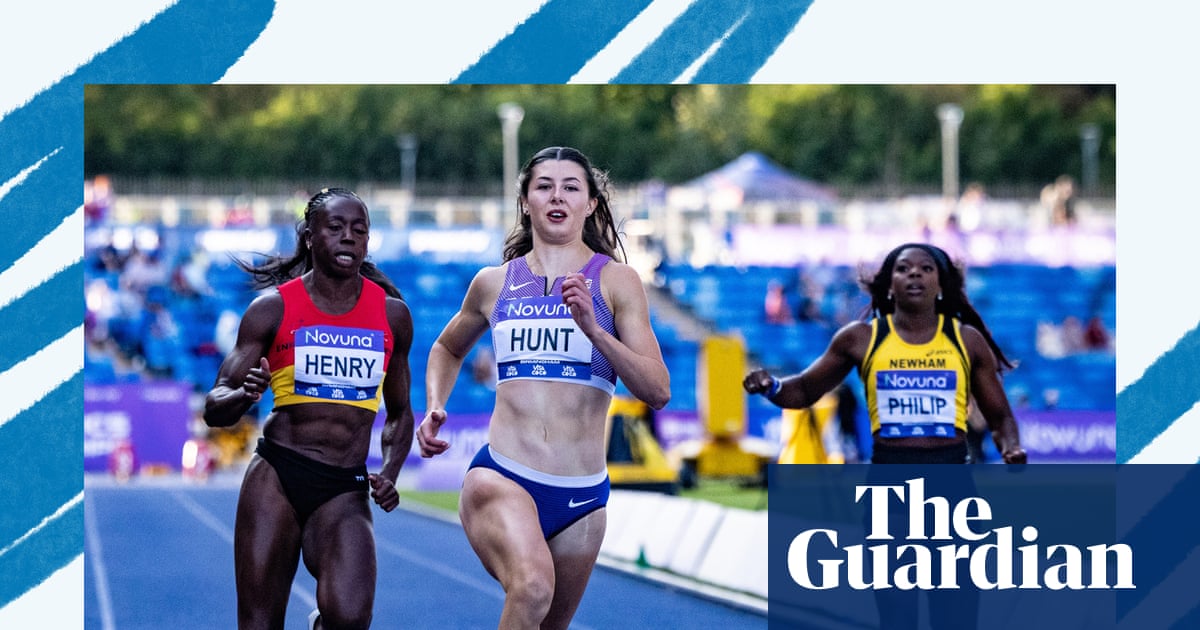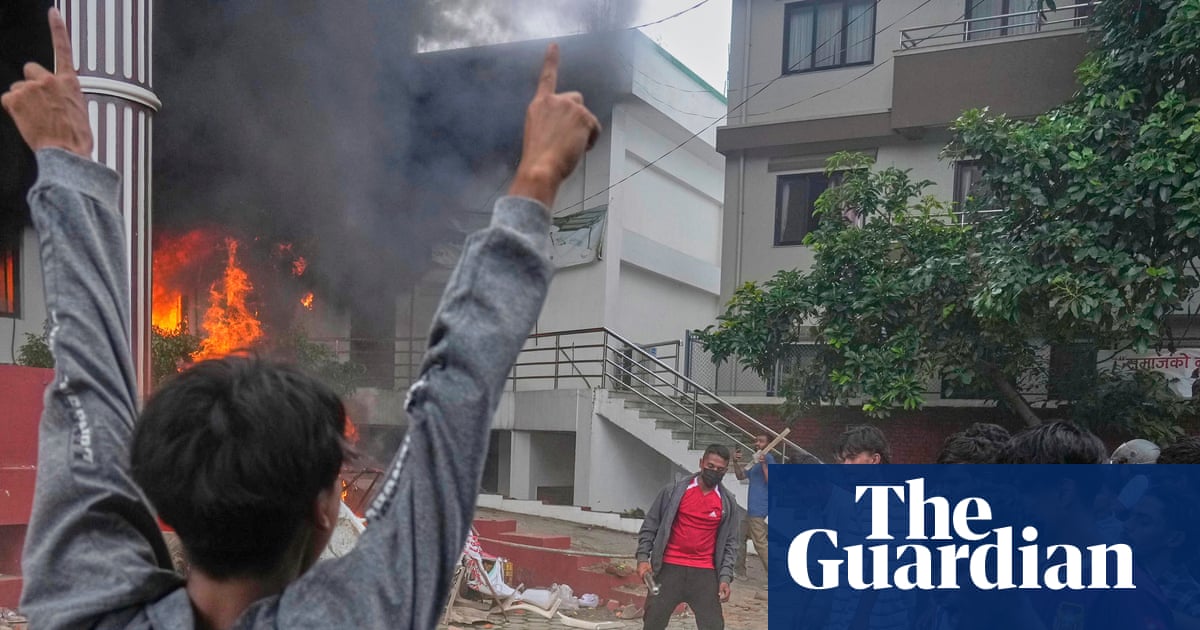“And what exactly are you doing here, sir?” To be fair, the border guard at Miami international airport made an excellent point. As ice-breakers go, frowning over the passports and visa tickers of the long-haul crowd on matchday minus four of the Fifa Club World Cup, the border guard was at least in tune with the zeitgeist. What is football doing here?
What are Lionel Messi, Trent Alexander-Arnold and the massed engines of the football-industrial complex doing hovering like an alien landing party over this fun, sinking sandbank of a city, a strip of land where the ocean seems to be punching a mulchy green hole in the asphalt every few miles, a place that from the air seems to be made entirely from deep-fried crumb, tropical weed and traffic?
And yes, the Fifa Club World Cup is only partly here at this point, glimpsed on highway billboards that also promote accident-chasing lawyers called things such as Chuck Flip-Burger III, still to emerge from the endless noise of the US’s rolling leisure economy. But it is still an excellent question that deserves a proper answer.
Even the strangely literal-minded obsession with the trophy itself seems to admit to the vacant space at the heart of this thing. Never mind the basic sense of apathy. Here is a magnificent sinister golden plate that, at the turn of a key, can be transformed into a magnificent sinister golden sphere. Here is a trophy that seems to lurk, to tick and hum and buzz, that looks as if it almost certainly houses sinister things in its secret drawers – stolen moon rock, the head of a pigeon.
The question of what football is doing here is even present in the Club World Cup marketing. Dazn, Fifa’s broadcast partner, is billing its breakthrough global event with the tagline Uncontested. It’s a good word, meaning ultimate, the best; but also with a sense of something unmoored, floating out beyond any real sense of accountability.
Often the best way to explain something is to pick at a thread. As the clock ticks down to Saturday night’s opener in Miami, as much of the pre-converted football world scratches its head at an event Gianni Infantino described this week as football’s “big bang”, perhaps the most helpful thread is Dazn itself.
Need an explainer for the Infantino-shaped universe? Follow the football and you’ll find the usual noses at the trough. Follow the money and who knows where you might end up. And Dazn is the money here.
It is no secret that the Club World Cup would not be happening in the way it is now happening without Dazn. In December 2024 Dazn offered Fifa a jaw-dropping $1bn (£787m) for the broadcast rights, all the more startling in a market that was, to that point, also Uncontested.
A month later Saudi Arabia concluded its own deal to buy a 10% stake in Dazn in return for – guess what – another $1bn. Two months after that Fifa announced its vast tournament prize fund, also, by coincidence, $1bn, thereby ensuring full compliance from its invited guests.
In the middle of this, around the time the soon-to-be-Saudi-part-owned Dazn was concluding its Fifa TV rights deal, Fifa awarded the 2034 World Cup to Saudi Arabia via a show of Uncontested applause from its members, thereby completing what is no doubt an entirely illusory circle of hand-washing.
So far, so old school. We have a sense of this world now. It seems essentially untouchable, just the way power works. Strongman shall speak unto strongman. But there is another, more structurally vital way that Dazn tells the story of what is happening here, a process that may have a profound effect on the way football, sport, that thing you love, is made available from here.
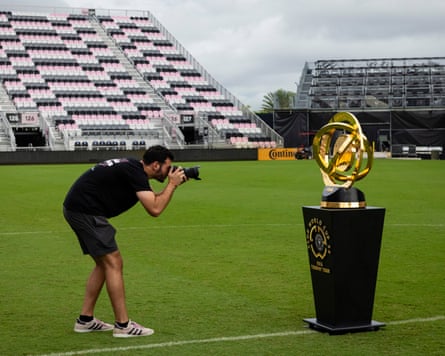
This is a case of dramatic foreshadowing. Watch any of the huge number of Star Wars spin-off prequels in circulation and it soon becomes clear the key plot device is the slow reveal, titillating glimpses of the road to full Death Star. The senate is always in a state of uproar. The empire is creating a secret army on the cloud planet Garff. Known evil things – storm troopers, imperial fighters – are glimpsed in chillingly casual pose. An ambassador dressed in robes will stand on a doom-shadowed causeway and talk of plans for a mysterious new weapon. And as ever the mood is one of head-scratching distraction.
Perhaps in years to come it may be said that the greatest trick the Club World Cup pulled was convincing those who care about football’s structures that it doesn’t really exist, that this is a business model that can be defeated by not liking it or not following it, that will simply fade back into the swamp.
Whereas in reality the empire does have a powerful new weapon, one that is being winched into place in front of our eyes, that is already in play, already digging its fingers into domestic leagues, already unmooring the spectacle.
The best way to understand this is to tug again at the Dazn thread. The company was launched in 2015 by the billionaire Len Blavatnik, who made his fortune in Russian smelting and metal, and now, with ties to Russia cut, is the third-richest person in the UK. Dazn was billed as the Netflix of sports, as all ambitious tech entities must be the Netflix of something, its method to offer a simple, all-in streaming service for sports, shot through with betting, gaming, e-commerce, NFT stuff.
For a while it rumbled along in the background. The boxing partnership with Saudi Arabia was a step up into serious-player status. By 2023 Dazn had 20 million subscribers worldwide. The Fifa deal, aided in turn by Dazn’s Saudi deal, is a company making its move.
after newsletter promotion
And right now the big thing about Dazn, its superpower through all this, is that it is not actually a money-making entity in any sense of the phrase. Why else would anyone pay $1bn for rights to a product it then gives away for free? This is instead a means of taking a place at the table, a stake in the product, all the while happily swallowing vast losses. Dazn reportedly lost $1.4bn in 2023, up from $1.2bn the year before, all the while fearlessly expanding its footprint, happy to disrupt and take ownership.
In this sense it is essentially irresistible, all the more so with the backing of the world’s greatest loss-leading sports propaganda project. And it has now found the perfect partner in Fifa, with its own expansionist aims, and also in the current generation of elite club ownership.
Everyone in football wants to find the next platform. It is a refrain at any gathering of leaders, owners and rainmakers. The long-term future of this sport is as an enabler, a source of cut-though, piggyback for some future global tech service, and from there access to the real Zuckerberg money.
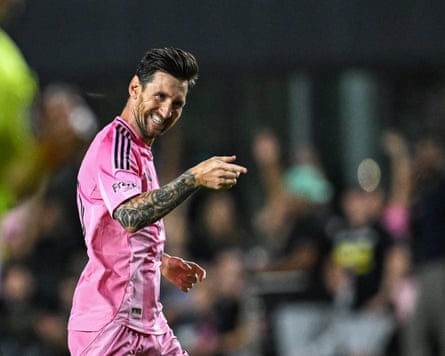
Dazn and the Club World Cup is to some extent a trial run for this process, a way of shaking off the shackles of all those baffling legacy interests. Dazn has always denied ever having any interest in the beached European Super League, which was bound up in constructing exactly this kind of global broadcast platform. But now we have this instead, a World Super League, a product no one seems to like, but which Dazn believes will become the most live-streamed event in sports history, all cut through, all positioning, all future-building.
There is an overlap of style and ambition even in the way the Club World Cup will be presented. The marketing pitch is about individuals, leveraging the social media following of star players and the power of mass celebrity fawning. Even the shirts have been tinkered with and detribalised just a little on the grounds of creating a better optic for the six-inch screen in the world’s pocket.
This is why Messi has been gerrymandered into place by Fifa, why the Dazn home screen is shot through with faces not badges, stars not clubs, why the Uncontested pitch is about goalscorers, top guns, names.
Even clicking on the homepage is a strangely gripping experience, like having your brain syringed through a small lighted screen crowded with endless shouted voices, from clips of Jude Bellingham admitting the Club World Cup is definitely a thing, to Dazn’s Global Football Creator Program, based out of “a creator house” not far from Fifa HQ in Miami, which aims to “mobilize over 100 digital creators, reaching more than 32 million followers across platforms”.
Here it is, global reach, global cut-through, the “immersive, multi-platform experience” of Pêche Football, AT Frenchies, Lisa Zimouche, BFordLancer, Alex Ramos, Jessica Vincent, Jen Munoz, Mike WoZ, Shepmates, Fabrizio Romano. This is also why it doesn’t really matter whether legacy fans love the Club World Cup, why talk of unsold tickets or a lack of competitive robustness seems to miss the point, stuck in the old metrics of value.
This has been billed by some as a trial run for the 2026 World Cup, as though what everyone here is really interested in is seeing if the stadiums work or the transport is any good. It feels more like a trial run for a version of the future.
The Club World Cup may pass in a haze this summer. Dazn may or may not last the course, may itself end up a beta version, planetary destructor ray Mk1. But the question of why football is here is not one that can be quietly ignored; not without that uncomfortable sense of a future that is already out there flexing its claws.

 3 months ago
47
3 months ago
47
